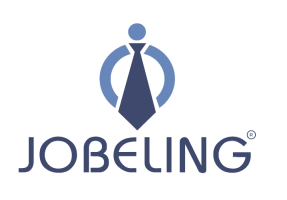
Backup singers are the unsung heroes behind many hit songs, harmonizing and enhancing the performance of lead artists. If you’ve always dreamed of performing on stage and have a passion for music, learning how to become a backup singer in 2024 could open up incredible opportunities. This career requires not only vocal talent but also persistence, professionalism, and an understanding of the industry. Whether you are just starting or looking to take your singing career to the next level, this guide by Jobeling will provide a detailed roadmap on how to become a backup singer.
Contents
- 1 What is a Backup Singer?
- 2 Why Consider Becoming a Backup Singer?
- 3 Essential Skills You Need
- 4 Education and Training for Backup Singers
- 5 Networking in the Music Industry
- 6 The Role of Auditions in Becoming a Backup Singer
- 7 Building Your Brand
- 8 Is Backup Singing Right for You?
- 9 How to Sustain a Long Career as a Backup Singer
- 10 Opportunities for Backup Singers in 2024
- 11 Frequently Asked Questions
- 11.1 How long does it take to become a professional backup singer?
- 11.2 Do I need formal music education to be a backup singer?
- 11.3 What type of gigs should I look for as a beginner?
- 11.4 How can I stand out in a backup singer audition?
- 11.5 Is there steady work for backup singers?
- 11.6 How do I get noticed by talent agencies like Jobeling?
- 12 Conclusion
What is a Backup Singer?
Backup singers provide vocal support to lead singers during live performances, recordings, and music videos. Their role is to harmonize, add depth, and enrich the overall sound, making the lead artist’s performance shine. While they may not always be in the spotlight, backup singers are essential to creating a polished, professional sound.
Why Consider Becoming a Backup Singer?
Stability in the Music Industry
Unlike lead artists who experience fluctuating fame, backup singers often enjoy steady work. You can collaborate with various artists and be involved in numerous projects without the intense pressures of being the main star.
Building a Versatile Skill Set
Learning how to become a backup singer helps in developing a wide range of vocal techniques, the ability to harmonize seamlessly, and the skills to adapt to different musical styles. These abilities can be transferable to solo projects, studio work, or teaching music.
Essential Skills You Need

Becoming a successful backup singer requires exceptional vocal control, including the ability to sing harmonies, blend with others, and change styles quickly. You should invest time in vocal training to improve your pitch, range, and overall vocal health.
Vocal Techniques for Backup Singers
- Pitch Matching: One of the most crucial skills for a backup singer is the ability to match the pitch of the lead singer precisely.
- Breath Control: Singing for long periods or at high intensities requires controlled breathing. Proper breath control allows backup singers to sustain notes and avoid running out of breath mid-performance.
- Harmonization: Being able to harmonize by ear is vital for backup singers. Learning how to blend your voice with others without overpowering them is key to a smooth performance.
Develop Stage Presence
Though your role is to support the lead artist, stage presence is still important. As a backup singer, you’ll be visible to the audience, and part of your job is to enhance the overall performance. Practice body movement, facial expressions, and audience interaction that complement the lead artist’s presence.
Learn Musical Styles
Backup singers are required to be versatile and sing across different genres like pop, rock, R&B, gospel, jazz, and more. The more adaptable you are, the more likely you’ll land various gigs. Study different genres, learn their unique vocal stylings, and train to adapt your voice to each one.
Education and Training for Backup Singers
Formal Education
While formal education is not mandatory, many successful backup singers benefit from vocal training or music education. Consider enrolling in a program at a music school or taking private lessons to strengthen your vocal and technical skills.
Seek Vocal Coaching
A vocal coach can help you improve the nuances of your singing technique and prepare you for the specific demands of backup singing. Coaches can guide you through harmonizing, voice blending, and even stage presence. They can also assist with audition preparation and provide feedback on your progress.
Networking in the Music Industry

Getting local experience as a backup singer is essential for building your network. Sing in local bands, at open mic nights, or join a choir. These opportunities will help you develop confidence, gain stage experience, and make connections with other musicians.
Collaboration is the backbone of a successful music career. As a backup singer, the more people you know in the industry, the better your chances are of landing gigs. Work with local artists, participate in online music forums, and attend music festivals or industry events.
The Role of Auditions in Becoming a Backup Singer
Auditions are a significant step in your journey to becoming a backup singer. Most artists or producers will hold auditions to find the right vocal talent for their tours or recordings. Ensure that you have a professional demo ready and practice versatile audition pieces that showcase your ability to harmonize, sing different styles, and blend well with other vocalists.
How to Nail a Backup Singer Audition
- Arrive Prepared: Always know the material you’re expected to perform, whether it’s original songs or well-known tracks.
- Confidence Matters: While your role is to support, exude confidence without overshadowing the lead. Show that you’re a team player.
- Versatility: Showcase your ability to sing various genres and harmonize effectively. Be prepared to follow any last-minute changes or directions during the audition.
Building Your Brand
Creating a Professional Portfolio
Your portfolio is a crucial marketing tool in the music industry. It should include a professional headshot, a short bio that highlights your experience, and recordings of your singing performances. An updated portfolio will increase your credibility and help land you more opportunities.
Utilizing Social Media to Promote Yourself
In today’s digital age, social media is a powerful tool for musicians. Use platforms like Instagram, TikTok, and YouTube to share your singing clips, connect with other artists, and engage with your audience. These platforms can also catch the attention of producers and lead singers looking for backup talent.
Is Backup Singing Right for You?

Before fully committing to the path of becoming a backup singer, it’s essential to evaluate your goals. Some singers see backup singing as a long-term career, while others view it as a stepping stone toward becoming a solo artist. Be honest with yourself about what you want to achieve, and pursue backup singing for the love of music and collaboration.
How to Sustain a Long Career as a Backup Singer
Stay Current with Trends
Music trends change rapidly, and staying informed about what’s popular can help you remain relevant. Whether it’s understanding new vocal techniques or learning about different genres, continuing education is essential for long-term success.
Maintain Professionalism
Backup singers often work closely with the lead artist, band members, and producers. Being reliable, adaptable, and easy to work with will ensure that you are called back for future projects. Time management, punctuality, and a positive attitude can make or break your career.
Opportunities for Backup Singers in 2024
In 2024, many artists are returning to touring after pandemic-related restrictions. This creates a high demand for backup singers to support live performances. These tours can range from small regional performances to global stadium tours.
Many backup singers spend time in recording studios, working on albums, commercials, and movie soundtracks. Recording sessions require precision, so having a strong ability to sight-read music and sing on key is essential.
Frequently Asked Questions
How long does it take to become a professional backup singer?
It can take several years to build the necessary vocal skills, experience, and industry connections. However, with dedication, you can begin booking gigs within a year or two.
Do I need formal music education to be a backup singer?
While formal education isn’t a requirement, vocal training and music theory knowledge can greatly improve your chances of succeeding.
What type of gigs should I look for as a beginner?
Local performances, church choirs, and recording sessions for small bands are great starting points to gain experience.
How can I stand out in a backup singer audition?
Confidence, versatility, and vocal precision will help you stand out. Make sure to showcase your ability to harmonize and follow directions.
Is there steady work for backup singers?
Yes, backup singers often find consistent work through touring, studio sessions, and live performances with different artists.
How do I get noticed by talent agencies like Jobeling?
Create a professional portfolio, engage on social media, and build your network. Talent agencies like Jobeling seek out passionate and skilled singers with a strong reputation.
Conclusion
Learning how to become a backup singer in 2024 is an exciting journey that combines vocal talent, professional dedication, and industry knowledge. Whether you aspire to tour with major artists or support singers in the studio, the path requires continuous growth, adaptability, and a passion for collaboration.
At Jobeling, we specialize in helping talented singers connect with high-profile opportunities. Our network and industry expertise can guide you through auditions, tours, and studio sessions, providing a strong foundation for your career. Whether you’re just starting out or ready to take the next big step, we’re here to help you achieve your dreams. Download our app today and get started right away.
